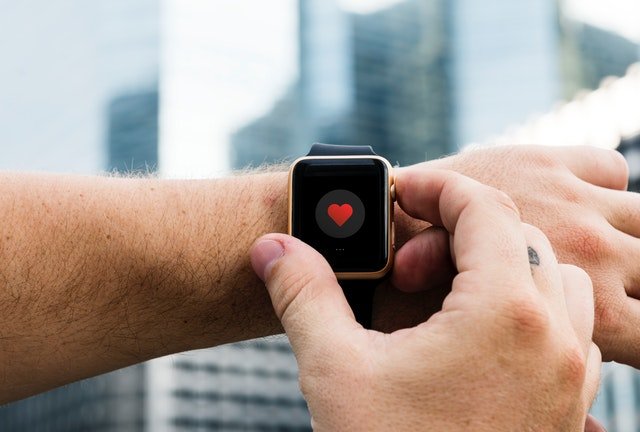
In the new Apple Heart Study, researchers found that smartwatch device could help detect abnormal heart rhythm in users.
This finding provides valuable information for people to prevent stroke.
The research was conducted by researchers from the Stanford University School of Medicine.
Atrial fibrillation is the most common heart rhythm disorder. It is characterized by a rapid and irregular heartbeat.
The condition often starts as brief periods of abnormal beating which become longer and possibly constant over time.
The main symptoms include tiredness, palpitations, shortness of breath, and difficulty exercising. But some patients have no symptoms at all.
The disease causes 20 to 30% of strokes and can increase the risk of premature death.
In the study, the researchers aimed to find whether a mobile app that uses data from a heart-rate pulse sensor on the Apple Watch could help detect atrial fibrillation.
They examined more than 400,000 people and 6% of them were above the age of 65.
On each participant, the Apple Heart Study app checked the heart-rate pulse sensor for measurements of an irregular pulse.
If an irregular pulse was detected, the participant received a notification and was asked to schedule a telemedicine consultation with a doctor involved in the study.
The team found that about 0.5% of participants received irregular pulse notifications.
In 84% of the time, participants who received irregular pulse notifications had atrial fibrillation at the time of the notification.
In addition, 34% of the participants who received irregular pulse notifications and followed up by using an ECG patch over a week had atrial fibrillation.
Finally, 57% of people who received irregular pulse notifications sought medical attention.
The findings suggest that smartwatch could help detect atrial fibrillation and start the treatment early to prevent stroke. It can help develop more predictive and preventive health care.
But there are still some problems. For example, many people wearing an Apple Watch will be younger and if they really have atrial fibrillation, it is hard for doctors to find the best way to deal with the condition.
Such a device may also bring a lot of anxiety among the people who wear it. Researchers also suggest that this device cannot replace standard techniques for diagnosing arrhythmias.
Future work needs to ensure that doctors, patients, and the healthcare system are all ready for this type of technology before it is used in a large population.
This is the largest study of a smartwatch app in detecting irregular heart rhythms including atrial fibrillation.
One author of the study is Mintu Turakhia, MD, associate professor of cardiovascular medicine.
The study was presented at the Meet the Trialist of the Apple Heart Study on Tuesday at EHRA 2019.
Copyright © 2019 Knowridge Science Report. All rights reserved.



